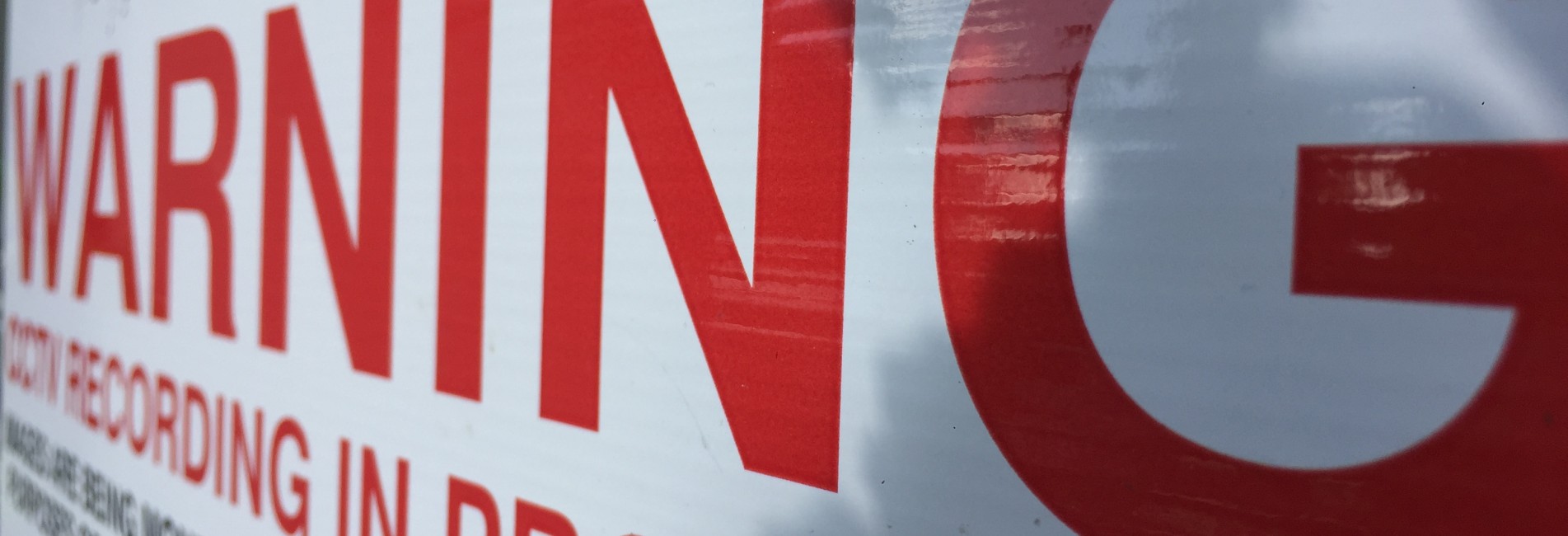CCTV And Your Rights
Posted on Wednesday 11th September 2019CCTV is used across a wide range of organisations for varying purposes. When using CCTV in the workplace, it is extremely important to ensure the rights of workers and whether or not CCTV use is justified. Employees must be notified regarding the purpose of the surveillance and where exactly cameras are located. If CCTV is set up with the sole intention of deterring crime, it must not be used only to monitor employee movement.
The Information Commissioner’s Office (ICO) states that most uses of CCTV will be covered by the Data Protection Act and that with regards to the use of CCTV and General Data Protection Regulation (GDPR) compliance, “It’s important to remember that even if you’re sharing images of an individual where you don’t know their name, you are still processing personal data as it’s likely that you or the other retailers involved will be able to identify the individual from the images alone or in combination with other information. The GDPR will apply in these scenarios”
Referenced from: https://ico.org.uk/for-organisations/business/sme-faqs/
Some organisations have policies on staff monitoring, ideally, this should form part of the contract of employment.
Can My Boss Watch Me On CCTV?
Under the Human Rights Act, employees have the right to privacy and any images captured of identifiable individuals fall under the GDPR guidelines. If CCTV is installed, employers should ensure employees are aware of it and for what purposes it serves. Employees should also be informed of CCTV location and cameras should be fitted with highly visible display signs which are clear and readable, as well as containing details of the purpose of the surveillance, plus website addresses, telephone numbers or emails.
Employers are lawfully allowed to monitor employees, especially in areas where stock or money is involved such as in shops, banks, currency exchange counters etc. Cameras in such situations can help to protect employees as well as prevent theft. For example, in the case of a dispute regarding the quantity of counted notes, CCTV often serves the purpose of accurate record keeping.
Employer Obligations and CCTV in the Workplace
Any image of any person(s) identifiable on CCTV is categorised under the Data Protection Act – employees have the right to request CCTV images of themselves and for a copy of them, this is known as a Subject Access Request and must be provided by the employer within 30 calendar days, upon request.
CCTV operators are not permitted to disclose identifiable images of any person(s) to the media, or online. Images may be disclosed for legal reasons, during any type of criminal investigation.
Under GDPR all organisations are expected to have some sort of retention, which means CCTV footage should only be stored for as long as necessary to meet the purpose of recording it.
Why Can CCTV Be Used?
CCTV monitoring should only be used for the purpose it was carried out for, although in some exceptional circumstances if footage leads to the discovery of other significant information, criminal activity, for example, this footage may be used. However, if the CCTV system was installed for crime prevention, it must not be used to record the entry and exit of workers from the workplace.
CCTV Monitoring can be used for the following:
Security & Crime Prevention – CCTV can help to keep staff safe, as well as helping to prevent theft, violence and other crimes.
Health & Safety – CCTV surveillance may be used to uphold health and safety rules, helping to safeguard employees and ensure they are not at risk from unsafe working practices.
Protecting Business Interests – It can be used to keep an eye on particular interests such as overcrowding in certain areas of the building and flow through access points, helping to generally improve the physical space of the organisation.
Training Staff – Showing employees how or how not to undertake certain tasks, using CCTV footage.
Is Covert Monitoring Allowed?
Secret monitoring – for example, by use of hidden cameras or audio devices, is not allowed under most circumstances, this is especially true for private areas such as in staff toilets, changing areas. Such monitoring may be permitted on rare occasions where there are reasonable grounds to suspect criminal activity such as theft, drug dealing or other serious malpractice.
If covert monitoring does take place it would usually be authorised by senior management and must consider the risk of intrusion of privacy to other workers. It should also only be allowed to be carried out for a set frame as part of a specific investigation.
Further reading on CCTV surveillance and the law can be found at:
https://ico.org.uk/media/for-organisations/documents/1542/cctv-code-of-practice.pdf
For more information on CCTV and surveillance systems, contact O.R.P Surveillance – we specialise in the design, installation and maintenance of CCTV and security systems. We supply a wide range of organisations of varying sizes with surveillance systems.

